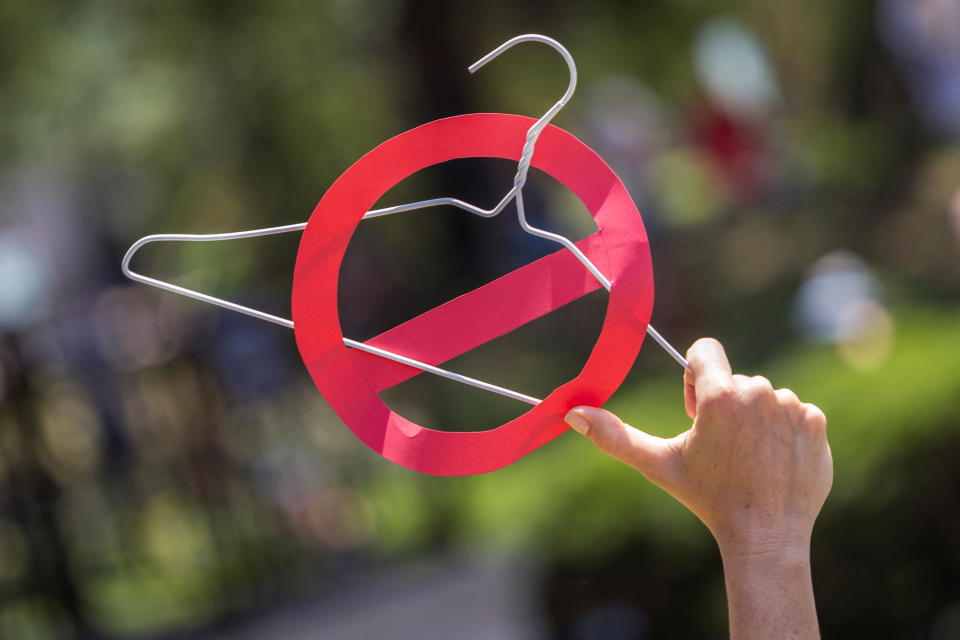The Supreme Court decision on Friday that overturned the landmark Roe v. Wade abortion ruling sent shockwaves across the nation.
Dr. Ruth Shaber, an OB/GYN and founder of the pro-abortion rights Tara Health Foundation, said the Supreme Court ruling was “very disappointing news,” though not surprising. She added that she’s wary of the impending effects on women’s health as well as on their roles in the workforce.
“Women are an essential part of financial leadership and certainly contribute to the economies across the world and certainly in the United States,” Shaber said. “What this ruling means is not only for individual women and their families and the impact on the ability to control their family size, but it’s a huge impact on businesses and states’ economies. It’s really important for business leaders to also be thinking about.”
Many companies — including Tesla (TSLA), Amazon (AMZN), and Apple (AAPL) — have pledged financial support for employees who travel to obtain abortions as many states are expected to implement abortion restrictions.
“These are all things that really do have an impact on the workforce,” Shaber said. “When we talk to a company about what this means, we’re emphasizing that it’s actually in their economic interest to provide as much support as possible for both their men and women, for their families so that they can have full coverage.”
‘It’s very destabilizing’
According to December 2021 data from the Institute for Women’s Policy Research (IWPR), state-level abortion restrictions cost states $105 billion on an annual basis, mainly due to a reduction in labor force participation and earnings levels.
The IWPR analysis found that if these state restrictions were lifted, 505,000 women between the ages of 15-44 would join the labor force and earn about $3 billion per year, increase national GDP by nearly 0.5%, and raise the incomes of individual women by an average of $1,610.
Immediately following the SCOTUS ruling, Missouri and Texas both announced that they had outlawed abortion in their jurisdictions, while other states with trigger laws are expected to enforce their own laws as well. At least two dozen states have trigger laws in place, which were designed to automatically go into effect on the ruling.
“You need to plan for the worst,” Shaber said. “We have been working quite extensively behind the scenes with a lot of big companies to help them understand the power that women have in their workforce. When you take away the opportunity to have essential health care, it’s very destabilizing [in] that we know both men and women do not want to be recruited to a company that has its headquarters where they would need to work in a state where they don’t have full access to reproductive health care.”
Shaber also stressed the effect that the abortion ruling will have on marginalized communities, particularly women of color and women who live in rural areas with already limited health care access.
“This is something that people with means, people with privilege in this country are going to be able to get the services they need,” she said. “They’re going to hop on a plane. They’re going to do what they need to do. But the impact is really on the folks in our country, our fellow citizens who have the least resources. It’s only going to perpetuate these cycles of a wealth gap that we’ve been talking about for years.”
Adriana Belmonte is a reporter and editor covering politics and health care policy for Yahoo Finance. You can follow her on Twitter @adrianambells and reach her at [email protected].
Click here for politics news related to business and money
Read the latest financial and business news from Yahoo Finance
Download the Yahoo Finance app for Apple or Android
Follow Yahoo Finance on Twitter, Facebook, Instagram, Flipboard, LinkedIn, and YouTube





